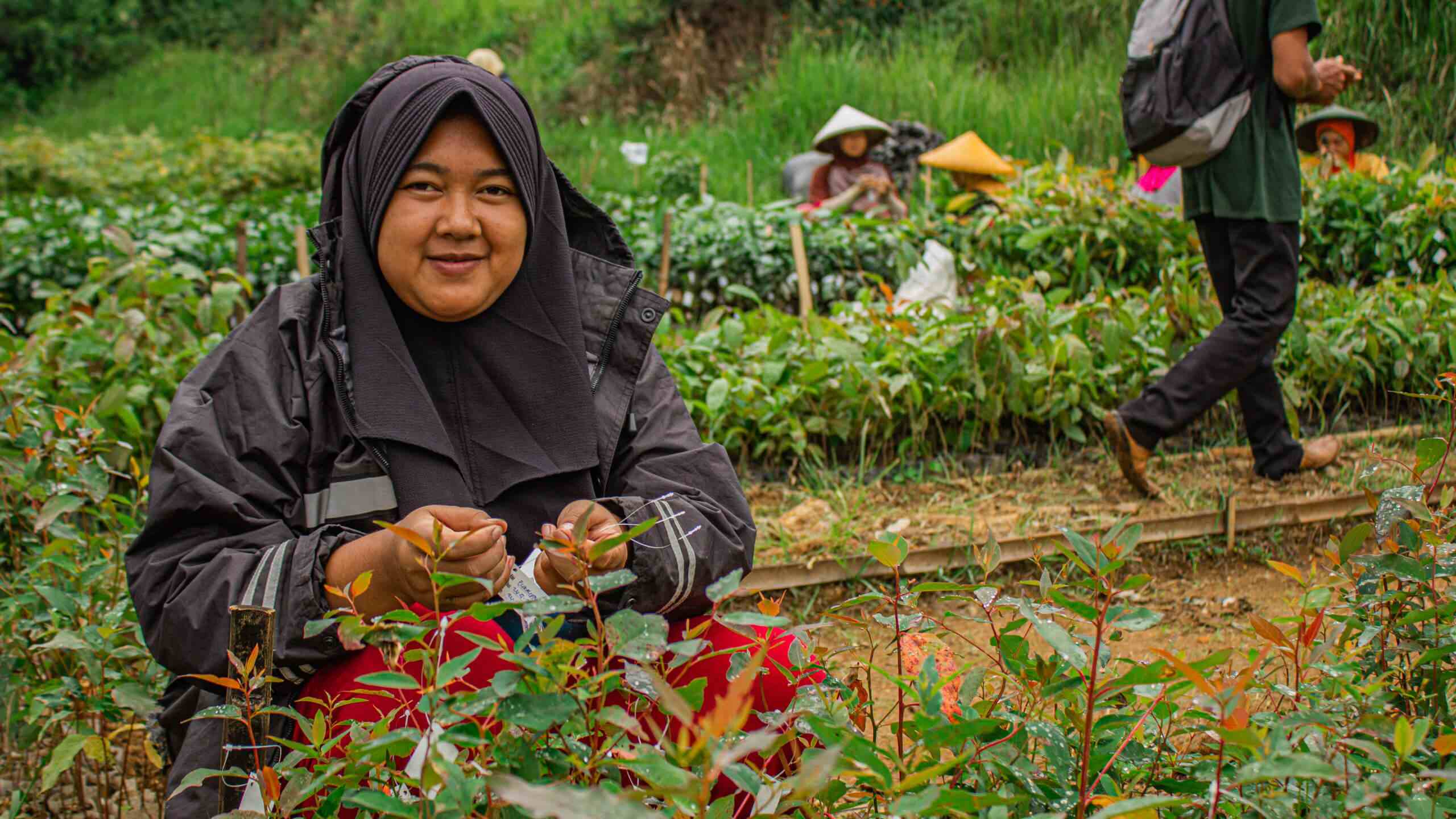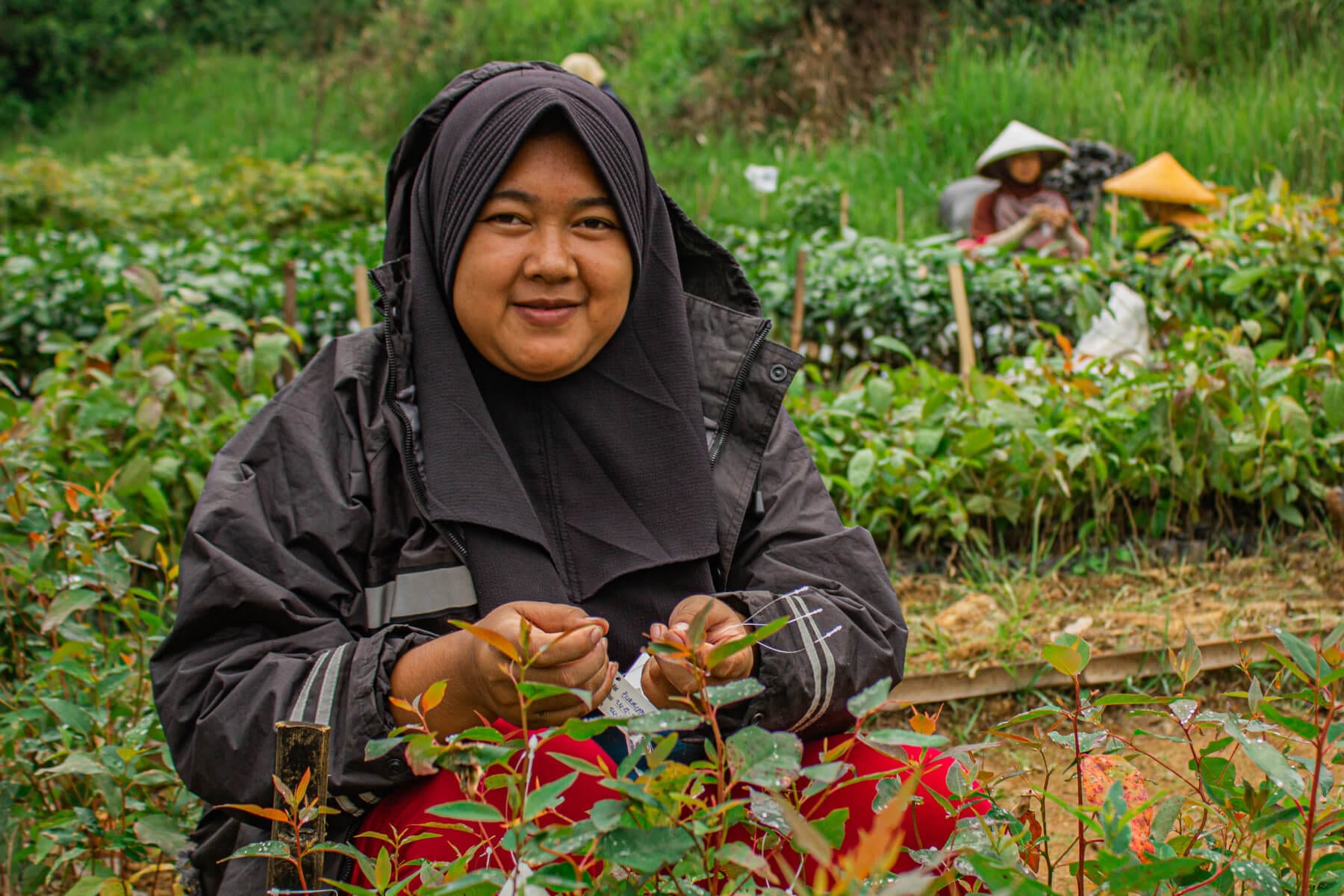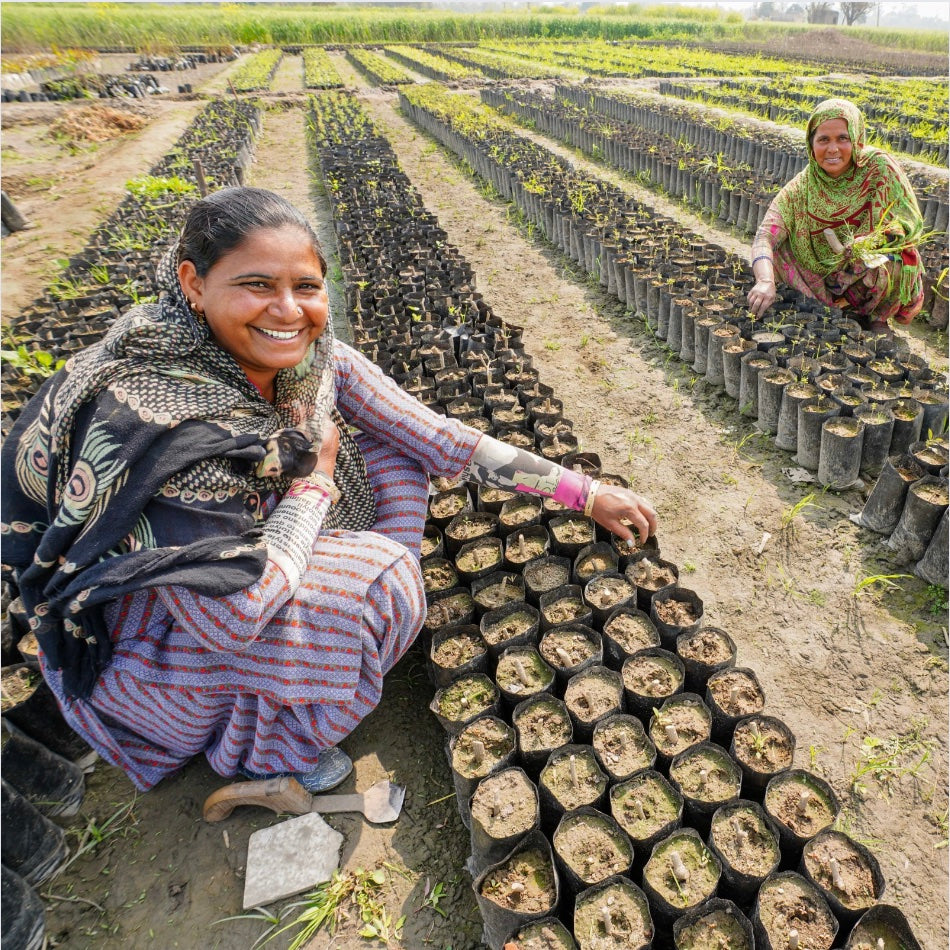

Women's Empowerment Fund
The Planet Needs Women
158M
More
By 2050, climate change may push up to 158 million more women and girls into poverty.
As climate change pushes millions of women into poverty, UN Women calls for a new feminist climate justice approach, UN Women
20-30%
Increase
If all women smallholders receive equal access to productive resources, their farm yields could rise by 20-30%.
Facts & Figures, UN Women
90%
Reinvestment
When women work, they invest 90% of their income back into their families, compared with 35% for men.
Clinton Global Initiative: Empowering Girls & Women, Clinton Global Initiative, United Nations
75%
Habitat Loss
At least 75% of California’s original habitat has already been lost.
60%
Of Water
60% of potable water in California is sourced from forested watersheds.
Empowering and Uplifting Women in Reforestation
The Women's Empowerment Fund for Reforestation was established to address two critical objectives: promoting environmental sustainability through reforestation, and advancing gender equity by empowering women in leadership roles within the environmental sector. The fund emphasizes supporting reforestation projects that have the highest need of funding and actively involve women at all levels of decision-making and implementation.
The fund's focus on women's empowerment aligns with the principles of gender equality and social justice. Research shows that women's involvement in forestry and conservation can lead to more sustainable outcomes and greater community engagement. By supporting women-led reforestation initiatives, we strive to address systemic barriers and promote inclusivity within the environmental movement.
Women and Forests
Trees provide a foundation for life to flourish almost everywhere they grow. They are nature’s best nurturers, creating and protecting habitats, cooling and shading their surroundings, shielding communities, growing nutritious food, and so much more.
Similarly, women provide the foundation for their families and communities with their innate ability to nurture, protect, heal, teach, and build. Studies show that women reinvest 90% of their income into their families and communities.
But it goes deeper than that: research also shows that women’s actions are more likely to be informed by the needs of the collective than the individual – and therefore, they’re more likely to make decisions that support the public good and improve the welfare of others (including nature).
SPONSORED BY:



Highlighted Gender Equity Projects

Female Farmer Empowerment and Education
Rwanda
Our reforestation partner KULA works to eradicate poverty through the development of entrepreneurs in Rwanda’s coffee-producing communities. Over the past three years, we have planted over 250,000 trees and empowered over 300 farmers — the majority of whom are women. Upon maturation, the coffee seedlings that are planted, grown, and maintained by the participating farmers, will provide sustainable income for farming families for up to 30 years.
Plant Trees for Punjab
India
This project focused on increasing tree cover for Punjab communities in India. As the trees grow, they will improve the overall health of these communities. From growing the seedlings to planting and after care, women played a central role in the planting and tending of trees, improving their social status. By placing women in positions of leadership and power, this project uplifted and empowered participants, helping to promote gender equity.


Restoring Watersheds and Agroforestry
Dominican Republic
This project planted trees to restore areas of the Artibonite watershed, which is situated within the border region of the Dominican Republic and Haiti — and affects water supplies in both countries. Every tree planted for this project will help revitalize the soil, promote biodiversity, and stabilize weather patterns. This project also helped promote gender equality in the Dominican Republic. Of all the participants in the planting, over half were women, with many in positions of leadership.
